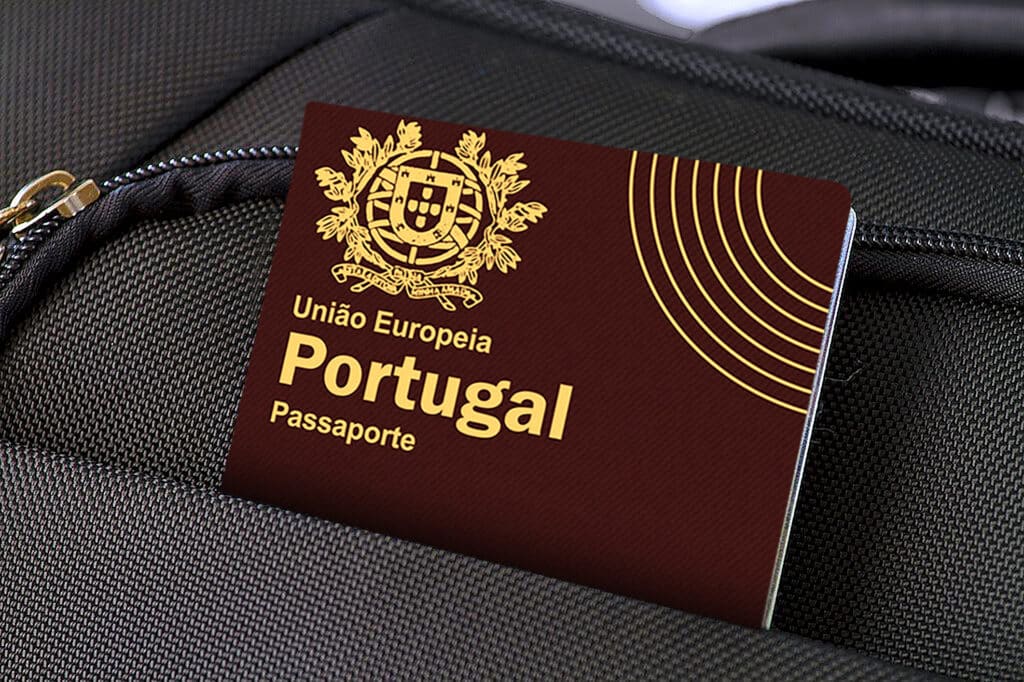Did you know GYH can help with your outbound immigration needs? We have a vast network of local counsel around the globe and offer consultations and representation for both global and U.S. immigration matters. Stay tuned for a series of guest blogs from our international local counsel network about immigration options in their home countries.
Summary of Portuguese Nationality and Visa Options

By Guest Contributors from PRA-Raposo, Sá Miranda & Associados: Maria Cavaleiro Brandão, Cátia Neto Ferreira, Rodrigo da Silva Ferreira, Edna Morais
PORTUGUESE NATIONALITY
Citizens who have Portuguese nationality can, obviously, reside in Portugal. Portuguese law allows foreign citizens to apply for Portuguese nationality, without prejudice to other requirements, who: (a) are descendants of citizens who already have Portuguese nationality, (b) who were born in Portugal, (c) are married to Portuguese citizens, have legally resided in Portugal for at least 5 years, (d) have already had Portuguese nationality in the past, (e) members of communities of Portuguese descent, (f) foreigners who have provided or are called upon to provide relevant services to the Portuguese State or the national community, (g) descendants of Portuguese Sephardic Jews, (h) and those who are ascendants of original Portuguese citizens.
Citizens who wish to reside in Portugal can also do so without Portuguese nationality, provided that they hold a residence visa for this purpose.
VISA OPTIONS
A. WORK VISAS
There are some types of visas that allow entry and residence in Portugal to carry out professional activities:
Visa D1 – Subordinate or independent professional activity:
This visa allows the exercise of subordinate professional activity for a minimum period of 1 year and is destinated for who have an employment contract or promise of an employment
contract. The visa is valid for 120 days and is only valid for two entries in Portugal. The applicants should apply to a visa at the Portuguese Consulate of his/her residency with some mandatory documents.
Visa D3 – Highly qualified professionals:
This visa allows the applicant to live and work in Portugal, as well as bring their family with them. For approval, an employment contract, promise of work or service provision contract that meets the requirements of a highly qualified professional is required. This visa can also be granted for the purposes of scientific research.
Job seeker Visa:
The job seeker visa entitles its holder to enter and remain only in Portugal for the purpose of looking for job; authorizes him/her to carry out a subordinated work activity, until the visa expires or until the residence permit is granted. This visa is granted for a period of 120 days and allows only one entry into Portugal. Once the maximum validity limit of the visa for looking for work has expired, without an employment relationship having been established nor the process of requesting the granting of a residence permit having begun, the visa holder must leave the country.
B. FAMILY-BASED VISAS
Foreign citizens, residing in a foreign country, family members or de facto partners with citizens legally residing in Portugal (Portuguese or not), if they wish to move to live with their family in Portugal, can apply for a residence visa for family reunification.
C. RESIDENCE VISAS
Own Income, Retirement & Religious Visas (D7 Visa)
In order to request this type of visa, the candidates should be pensioners, religious or living on their own income. Therefore, this type of Visa is an option for those who intend to enjoy their retirement in Portugal, to practice their cult among their religious community.
Digital Nomad Visa (D8 Visa):
As the name suggests, this type of visa is aimed for digital nomads, i.e. remote workers (employees or freelancers) who wish to maintain their professional activity abroad and reside in Portugal at the same time. The Portuguese Immigration Law has specific requirements that must be met, such as salary.
Entrepreneur Visa (D2 Visa):
The applicant who wants to reside in Portugal should set up a company or a start-up with headquartered in Portugal and with relevant business purpose for the Portuguese economy without any specific amount of share capital. In this case, the company must present a business plan covering the next few years, demonstrating the added value for the Portuguese economy.
All residence visas described above must be requested at the country of origin or residence, if different. The residence visa is valid for 4 months and allows two entries in Portugal; during that period of time, the citizen will have an appointment at the Immigration Services in Portugal to convert the visa into a residence card.
The residence cards are valid for two years, renewable for equal periods of 3 years.
Golden Visa:
On the other hand, the Portuguese government has also created a type of residence for citizens who wish to invest, but not reside in Portugal, which is called Golden Visa.
Currently, it is possible to invest, in brief, in the following: 1) creation of 10 jobs; 2) transfer of €500.000,00 in investment funds; 3) capital transfer of €500.000,00 for the incorporation of a company or increase of the share capital with the creation of 5 permanent jobs or maintenance of 10 jobs, respectively, among others.
PRA-Raposo, Sá Miranda & Associados, Sociedade de Advogados, SP, RL is a structured and client-oriented organization, equipped with a set of human and technical resources dedicated to providing integrated legal advice, advocacy and specialized legal training, directing its services to corporate clients, individuals, public entities and professional associations. The firm currently collaborates with more than 200 professionals, with a high level of specialization, organized into 13 practice areas and 5 Economic Units, prepared to respond with quality, rigor, speed and effectiveness to the challenges posed in the various areas of law.
Note: This information is for informational purposes only and does not constitute legal advice or establish an attorney-client relationship.

